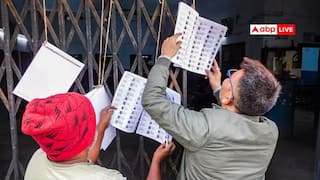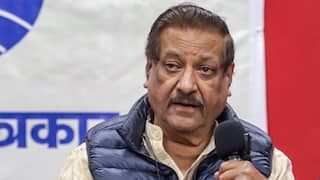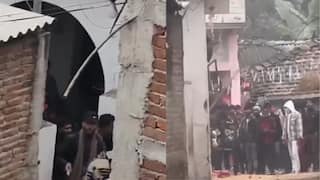'Fire In Middle East Becoming An Inferno': UN Secretary-General Says As Israel Refuses Temporary Ceasefire
Israeli Ambassador Danny Danon, however, called the Iranian attacks against civilians in the country "cold-blooded" and an "unprecedented act of aggression".

UN Secretary-General Antonio Guterres on Tuesday called for an immediate ceasefire between Israel and Hezbollah militants, as Israel launched a “limited” ground incursion into Southern Lebanon.
The Secretary-General, during an emergency meeting of the UN Security Council on the situation in the Middle East, said that the raging fire in the Middle East is becoming an inferno.
The meeting comes after France and Israel called an emergency mett following Iran's decision to launch close to 200 ballistic missiles at Israel on Tuesday and the Israeli forces launching "limited" incursions into southern Lebanon.
He said that since the last week, things have "gone from bad, to much, much worse". He said that the US and France called for a temporary ceasefire to restart the negotiations, but Israel refused that proposal and stepped up its strikes.
"The raging fires in the Middle East are fast becoming an inferno... The United States and France with the support of several other countries -- have proposed a temporary ceasefire allowing for the restart of negotiations...Israel refused that proposal and stepped up its strikes, including bombing the Hezbollah headquarters where its leader was killed," Guterres told the Security Council.
"UNIFIL peacekeepers remain in position, and the UN flag continues to fly despite Israel’s request to relocate...I reiterate our deep appreciation to the military and civilian members of our UN peacekeeping force – UNIFIL – and to troop contributing countries," he added.
What Countries Said In The Security Council Meet?
Russia: Russia’s envoy to the UN, Vassily Nebenzia, while addressing the Security Council, expressed his country’s “decisive condemnation” of Israel’s assault on Lebanon and called on Israel to “immediately stop the use of force and withdraw troops from Lebanon’s territory”. Nebenzia accused Israel and its “American accomplices” of resorting solely to the use of force in resolving their concerns.
China: Ambassador Fu Cong said that Beijing is opposed “to all acts that violate the basic norms of international relations and condemn all violence and attacks against civilians.” He added that China shared “the position of the United Nations that any Israeli crossing into Lebanon violates the sovereignty and territorial integrity of Lebanon and contravenes the provisions of the Security Council resolution 1701.”
Lebanon: Chargé d’Affaires Al-Sayyid Hadi Hashim said the Middle East region is burning from all sides. “Everything Israel says about limited surgical military operations is not true,” Hashim said, pointing to the attack in the village of Ain al-Delb as “the best proof”, when on September 29 an Israeli raid targeted a residential building that ended up with 71 people, including dozens of women and children, buried in a mass grave.
Israel: Israeli Ambassador Danny Danon, however, called the Iranian attacks against civilians in the country "cold-blooded" and an "unprecedented act of aggression". “These scenes have not been witnessed since the Blitz in London,” Danon said, referring to attacks against the UK capital during the Second World War.
Iran: In its response to the Tuesday's attack, Iranian Ambassador Amir Saied Iravani said that the strikes against Israel were a "proportionate response to Israel’s continued terrorist aggressive acts over the past two months" that was "necessary to restore balance and deterrence".
Related Video
Uttarakhand News: Winter Chill Grips North India; Kedarnath Dham Covered in Snow





































